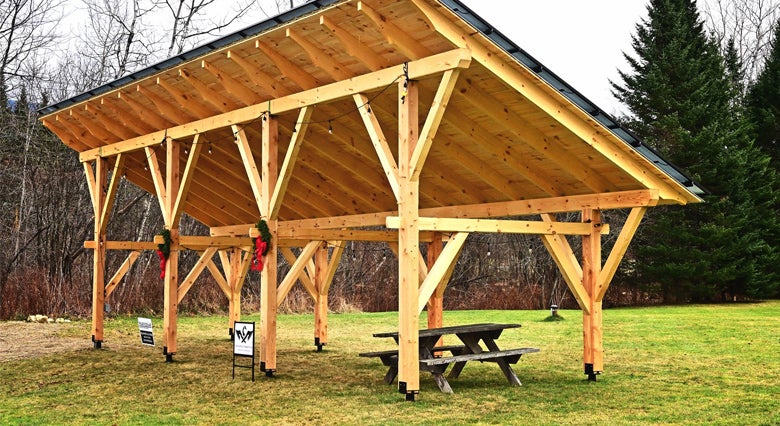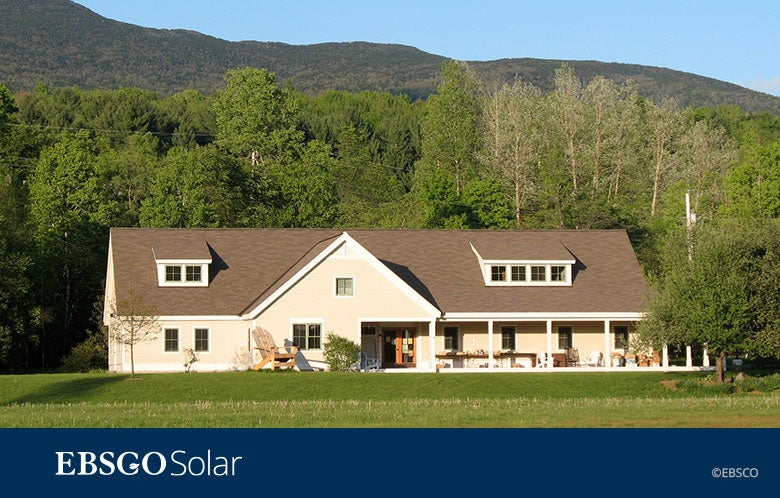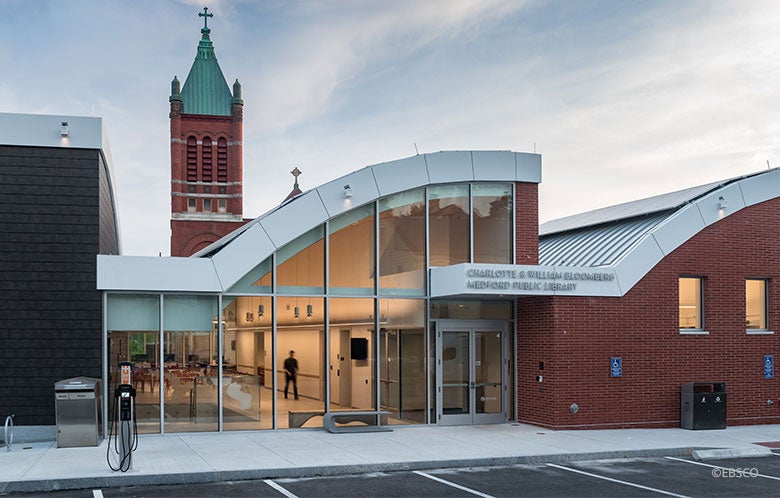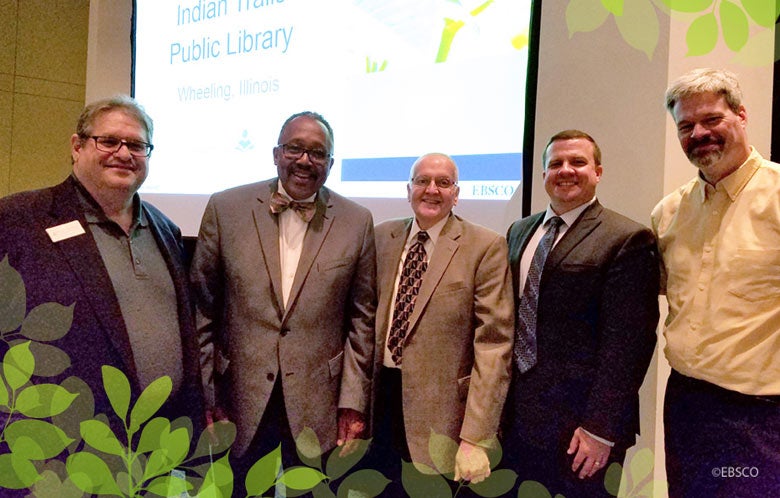So it goes that necessity is often the mother of happy invention. In 2022, the Lincoln Library’s heating system was twenty-two years old and beyond repair. It was, furthermore, a carbon-burner of the first order. After much research, debate and fiddling with the budget, a plan was put in place that would lead the library entirely away from fossil-fuel energy. And the first phase was to get the oil-burning monster out of the building and replaced with a high-efficiency, cold-climate heat pump system, a job accomplished in late summer 2022.
The second phase of the library’s energy sustainability plan called for the installation of a solar panel array. The goal from the first was “functional but avoid ugly.” Accordingly, a Lincoln-based company designed for us a locally sourced, timber-framed solar panel support system that would provide for the library’s full heating requirements. The design would do its main job but would also be striking in appearance, and its roofed, “pavilion” style would encourage usage as a lunch spot, children’s story time location, a Wi-Fi hotspot, a concert pavilion and much more.
All the solar array planning at this point was with hopes that the library’s budget might some distant day allow for the go-ahead. But when staff at the library learned of the EBSCO Solar grant opportunity, we sensed a perfect fit with the library’s needs. A board trustee then took on the challenge of writing the application in the spirit of “nothing ventured, nothing gained.” When word of the “gain” arrived from EBSCO, there were literally tears of joy among staff and trustees.
With plans already in hand, the library moved quickly. The newly christened “Sun Pavilion” is now in place and fully functioning, a generational moment in the life of the Lincoln Library marked by a “Flip-the-Switch” program and celebration in early December 2022.
Our primary advice for any prospective EBSCO Solar applicants would be to give careful attention to goal formation, connecting the dots between present circumstances and the library’s goal.
Our primary advice for any prospective EBSCO Solar applicants would be to give careful attention to goal formation, connecting the dots between present circumstances and the library’s goal.
Library staff and trustees have begun to pivot towards programming shaped by the Sun Pavilion project. New programs will also be informed by a recently adopted “Lincoln Library Sustainability Policy,” which confirms the library’s commitment to “being aware of our carbon footprint and promoting environmental stewardship at all levels.” The policy pledges the library to “minimize pollution and waste, conserve energy and water, protect habitat, support renewable energy resources, buy environmentally friendly products, and celebrate all environmentally friendly behavior.”
Our primary advice for any prospective EBSCO Solar applicants would be to give careful attention to goal formation. Connecting the dots between present circumstances and the library’s goal should lead logically through the EBSCO application process with a compelling narrative structure in place. Professional grant writers speak about the need for a good story supported by attention to the details (usually gathered by lots of research). That’s good advice. And it helped keep our project planning “real” and grounded by thinking globally, to be sure, but acting locally. All the people who actually did the work of installing the heating system and the solar array, for example, are citizens of our little mountain town, which meant we worked with accomplished, expert neighbors who were committed to the quality of their work and the library and its well-being.
The plaque that will shortly be installed on the Sun Pavilion expresses gratitude to EBSCO (absolutely!) but also to the library “partners” who did the hands-on work.
Libraries are sometimes said to have “acceleration influence” in their communities, a virtue that informed the Lincoln Library’s planning and programming from the first. To arrive at the library today is to marvel at the Sun Pavilion hard at its Vermont-sun-kissed, carbon-free work and to be struck by its beauty and general usefulness. Its sheer presence confirms the library’s leadership towards a greener, more sustainable future. All thanks to EBSCO’s support and generosity!




